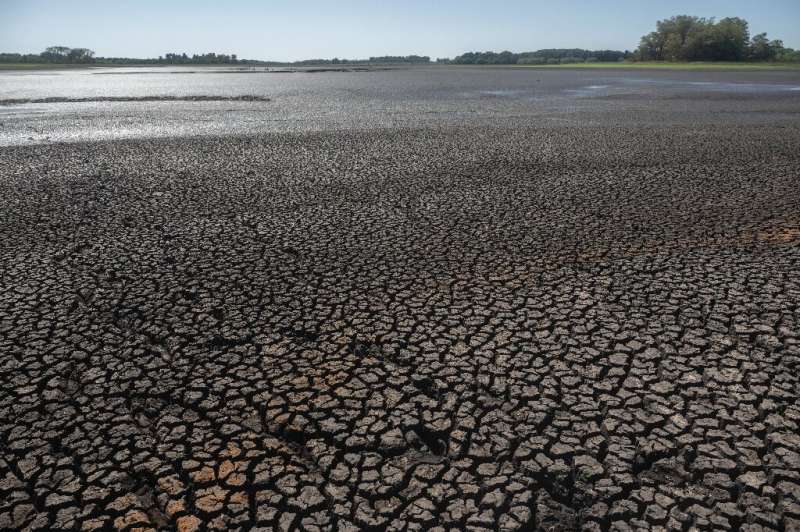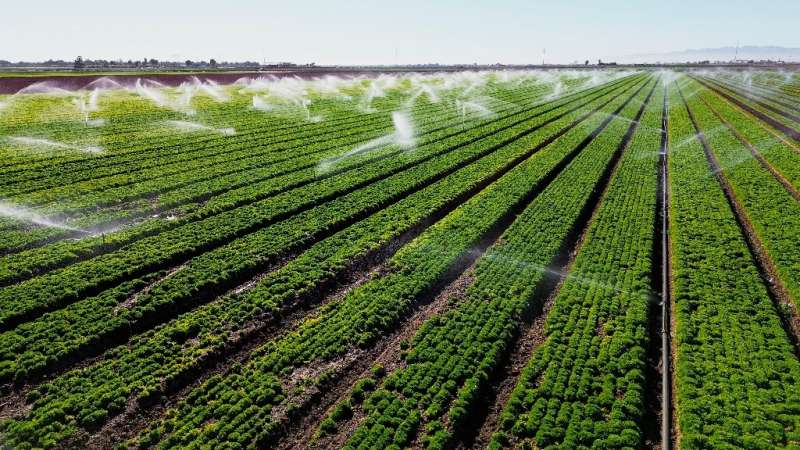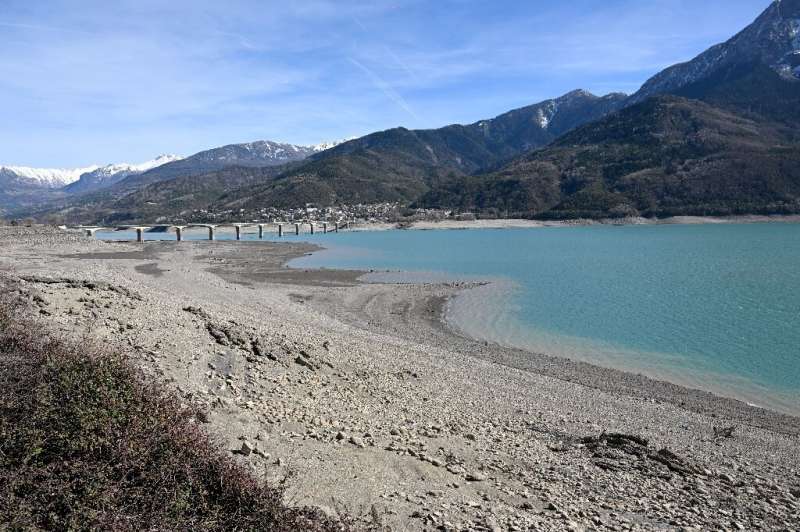This article has been reviewed according to Science X's editorial process and policies. Editors have highlighted the following attributes while ensuring the content's credibility:
fact-checked
reputable news agency
proofread
Humanity has 'broken the water cycle,' UN chief warns

The future of humanity's "lifeblood"—water—is under threat worldwide, the UN secretary-general warned Wednesday at the opening of the global body's first major meeting on water resources in nearly half a century.
"We've broken the water cycle, destroyed ecosystems and contaminated groundwater," Antonio Guterres said at the three-day summit in New York, which gathers some 6,500 participants including a dozen heads of state and government.
"We are draining humanity's lifeblood through vampiric overconsumption and unsustainable use, and evaporating it through global heating," Guterres told the conference.
A report by UN-Water and UNESCO released Tuesday warned of too little or too much water in some places, and contaminated water in others—conditions it said highlight the imminent risk of a global water crisis.
"If nothing is done... it will keep on being between 40 percent and 50 percent of the population of the world that does not have access to sanitation and roughly 20-25 percent of the world will not have access to safe water supply," report lead author Richard Connor told AFP.
With the global population increasing every day, "in absolute numbers, there'll be more and more people that don't have access to these services," he said.
The report also warned that water "scarcity is becoming endemic" due to overconsumption and pollution, while global warming will increase seasonal water shortages in both areas with abundant water as well as those already strained.
Governments and actors in the public and private sectors will present proposals at the conference to reverse that trend and help meet the development goal, set in 2015, of ensuring "access to water and sanitation for all by 2030."
The last conference at this high level on the issue, which lacks a global treaty or a dedicated United Nations agency, was held in 1977 in Mar del Plata, Argentina.

"The water crisis is bad enough without climate change," said Stuart Orr of the World Wildlife Fund.
"We can build resilient societies and economies if governments and businesses urgently pursue policies, practices and investments that recognize—and restore—the full value of healthy rivers, lakes and wetlands," he said.
But some observers have already voiced concerns about the scope of commitments and the availability of funding to implement them.
'Now or never'
"About 10 percent of the world's population lives in a country where water stress has reached a high or critical level," the report said.
According to the most recent UN climate study, published Monday by the IPCC expert panel, "roughly half of the world's population currently experience severe water scarcity for at least part of the year."
Those shortages have the most significant impact on the poor, Connor told AFP.
"No matter where you are, if you are rich enough, you will manage to get water," he said.
Women and girls are also "disproportionately affected," actor Matt Damon, co-founder of the nonprofit Water.org, said Wednesday, adding that "millions of girls aren't in school because of this, because they're collecting water."

The report noted the impact of water supplies becoming contaminated due to underperforming or nonexistent sanitation systems.
"At least 2 billion people (globally) use a drinking water source contaminated with feces, putting them at risk of contracting cholera, dysentery, typhoid and polio," it said.
That high number does not take into account pollution from pharmaceuticals, chemicals, pesticides, microplastics and nanomaterials.
To ensure access to safe drinking water for all by 2030, levels of investment would have to be tripled, the report said.
Freshwater ecosystems—which in addition to water, provide life-sustaining economic resources and help combat global warming—"are among the most threatened in the world," the report warned.
"Everything we need to live a decent life is directly related to water: our health, food safety, habitats, economy, infrastructure and climate," said Dutch King Willem-Alexander, who is summit co-chair alongside the president of Tajikistan.
"Now it is time to rise above our partial and sectional interests, see the big picture and get moving."
But as with the fight against climate change, the poorest countries do not have the means to do it alone.
"We must build water infrastructure fit for a new world in which storms are more frequent and stronger," focusing on storage on islands where sea intrusion into freshwater aquifers is increasingly problematic, said Tuvalu Prime Minister Kausea Natano.
© 2023 AFP




















